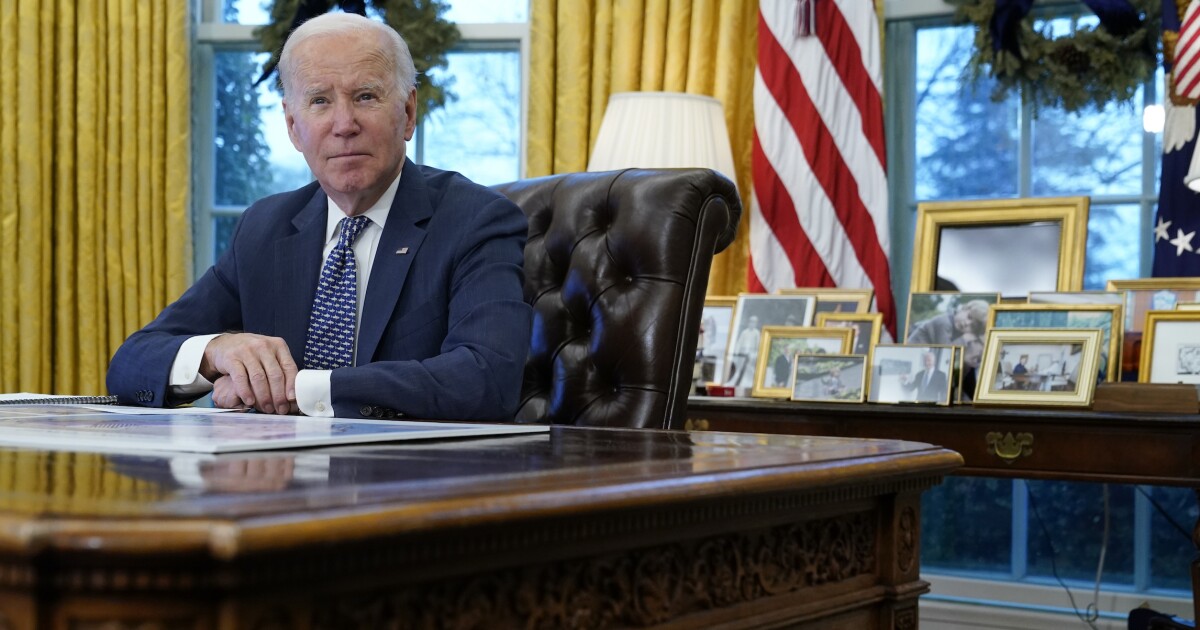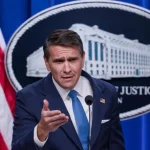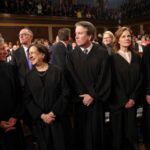

The White House doesn’t have to quarrel with the technical definition of a recession after a healthy third-quarter GDP report, but the Biden administration may find itself dealing with an unquestioned economic downturn in 2023.
America’s GDP grew at a seasonally-adjusted 3.2% annual rate in the third quarter after declining in the first half of the year, giving the Biden administration a temporary reprieve from economic headaches.
THIRD-QUARTER GDP GROWTH REVISED UP TO 3.2% RATE IN SIGN OF ECONOMIC STRENGTH
“If there is a recession coming right around the corner, the American consumer sure doesn’t know it. So far the Fed’s heavy-footed rate hikes are only hurting residential housing construction,” noted Christopher Rupkey, chief economist for FWDBONDS.
But most economists still predict that a recession is likely to hit the U.S. sometime next year, which could prove to be disastrous timing as the 2024 presidential race emerges on the horizon.
Inflation came in at 7.1% year-over-year in the most recent report, down from a June high of 9.1%, but still more than three times the Federal Reserve’s 2% target. As a result, the Fed has been aggressively hiking interest rates, the full effect of which is only beginning to be felt.
The housing market, often considered a leading indicator of economic activity, knocked off 1.4 percentage points from the headline GDP number. Meanwhile, gross domestic income rose just 0.8%.
If the rest of the economy eventually follows, it could hit at a very bad time for President Joe Biden as he appears to be leaning toward running for reelection in 2024.
“Unemployment is still at a 50-year low. We’re in a situation where the GDP is growing — not exorbitantly but manageable,” Biden said in remarks before the Democratic Senatorial Campaign Committee on Dec. 3. “It’s a debate what we can do, how much more we can do and not run into a recession. But so far, a lot of folks have been preaching gloom and doom, and it hadn’t happened yet. Doesn’t mean it won’t happen.”
Biden and members of his economic team spent much of the summer arguing that the economy was not in a recession, and Biden even claimed it was “strong as hell” while eating ice cream in Oregon in October.
Meanwhile, economist Arturo Estrella estimates a 95% chance of a recession in the coming year, and a Bloomberg Economics model released the same month as Biden’s “strong as hell” proclamation predicted a 100% chance of a recession.
Not everyone agrees. Gerald Friedman, a University of Massachusetts economics professor, predicts a recession only in the most abstract sense.
“It’s pretty safe to say there’s going to be a recession sometime, because there’s always going to be one sometime,” Friedman said. “But it may not be for a while.”
Friedman thinks the economy is going to remain steady, and hopes the Fed eases its interest rate hikes in order to allow that to happen. Some economists, especially conservative ones, point to the $1.9 trillion American Rescue Plan, which passed with only Democratic votes in March 2021, as a major driver of the persistent inflation the Fed is now fighting.
Friedman points toward other factors, especially supply chain constraints lingering from the pandemic, and says policies passed since Biden took office like the CHIPS and Science Act and the Infrastructure Investment and Jobs Act are likely to boost the economy going forward.
The wider public is already shaky about Biden’s handling of the economy, giving the president a 39.3% approval on the issue, per RealClearPolitics, a figure which lags his overall 43.4% approval and would likely drop even lower if the economy tanked.
Recessions have played major roles in recent presidential elections, with one in the early 90s helping Bill Clinton unseat George H.W. Bush, and the 2008 Great Recession likely sealing the deal for Barack Obama.
CLICK HERE TO READ MORE FROM THE WASHINGTON EXAMINER
But Friedman thinks Biden stands a good shot at keeping the “R” word at bay, at least through the end of next year.
“The latest GDP numbers were up, and every place I look there are help wanted signs,” he said. “So it doesn’t seem the economy is in a recession now, and I don’t know that we’ll be heading to one.”







